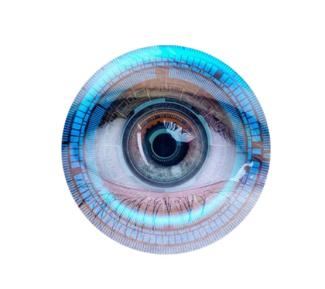
Sleep apnea is a serious and often underdiagnosed condition that affects millions of people worldwide. It is characterized by repeated episodes of partial or complete obstruction of the upper airway during sleep, leading to breathing interruptions (apnea) or significant reductions in breathing (hypopnea). Traditional treatments for sleep apnea include the use of continuous positive airway pressure (CPAP) machines, lifestyle changes, and, in some cases, surgical interventions. However, there is growing interest in alternative therapies, including the use of natural remedies such as garlic.
Health Benefits of Garlic
Garlic (Allium sativum) is renowned for its numerous health benefits. It has a long history of use in traditional medicine and is valued for its antimicrobial, anti-inflammatory, and antioxidant properties. One of the key compounds in garlic is allicin, which is produced when garlic is chopped or crushed. Allicin is responsible for garlic's distinctive smell and many of its therapeutic effects.
- Anti-inflammatory Properties: Inflammation plays a significant role in many chronic diseases, including sleep apnea. Chronic inflammation can contribute to the narrowing of the airways and exacerbate the symptoms of sleep apnea. Garlic contains potent anti-inflammatory compounds that can help reduce inflammation in the body, potentially improving airway function and reducing apnea episodes.
- Antioxidant Properties: Free radicals and oxidative stress can damage tissues and worsen health conditions. Antioxidants in garlic, including allicin, help neutralize free radicals and reduce oxidative stress, which can have a positive impact on respiratory health.
- Antimicrobial Properties: Garlic is known for its antimicrobial properties, which can help prevent infections of the upper respiratory tract, a potential risk factor for the development or exacerbation of sleep apnea.
Is Eating Garlic Before Bed Beneficial for Sleep Apnea?
Given the mentioned properties of garlic, the question arises whether eating garlic before bed can be beneficial for people with sleep apnea. Although there are not many direct scientific studies specifically examining the impact of garlic on sleep apnea, existing research on its general health benefits and properties provides some insights.
- Improving Sleep Quality: The anti-inflammatory and antioxidant properties of garlic can contribute to overall respiratory health, which can positively affect sleep quality. Reduced inflammation and improved airflow through the airways can decrease the frequency of apnea episodes.
- Immune System Support: Garlic boosts the immune system, which can help prevent infections that may worsen the symptoms of sleep apnea. A healthy immune system is crucial for managing sleep apnea and maintaining overall health.
- Cardiovascular Benefits: Sleep apnea is often associated with cardiovascular diseases. Garlic can help improve cardiovascular health by lowering blood pressure and cholesterol levels, which can indirectly contribute to better management of sleep apnea.
How to Consume Garlic
To achieve the maximum benefits, it is important to know how to properly consume garlic:
- Raw Garlic: The most effective way to harness the allicin and other beneficial compounds in garlic is to consume it raw. Chop or crush the garlic and let it sit for about 10 minutes before consuming it to allow for the formation of allicin.
- Cooked Garlic: While cooking can reduce the allicin content, it still allows for the consumption of many other beneficial compounds. Use garlic in various dishes as part of a balanced diet.
- Garlic Supplements: If the taste or smell of raw garlic is unpleasant, garlic supplements in the form of capsules or tablets can be used. It is important to choose high-quality supplements with a high allicin content.
Other Natural Remedies for Sleep Apnea
In addition to garlic, there are other natural remedies that can help manage sleep apnea:
- Healthy Diet: A balanced diet rich in vitamins and minerals can help reduce inflammation and maintain a healthy weight, which is crucial for managing sleep apnea.
- Regular Physical Activity: Regular exercise helps maintain a healthy weight and strengthens respiratory muscles, which can reduce the symptoms of sleep apnea.
- Sleeping Position: Sleeping on the back can worsen the symptoms of sleep apnea. It is recommended to sleep on the side to allow better airflow through the airways.
- Avoiding Alcohol and Sedatives: Alcohol and sedatives can relax the muscles in the throat, worsening sleep apnea. Avoiding these substances before bed can help reduce symptoms.
- Proper Hydration: Drinking enough water throughout the day helps keep the mucous membranes in the airways moist, which can contribute to better breathing during sleep.
- Maintaining a Healthy Weight: Obesity is a significant risk factor for sleep apnea. Losing weight through diet and exercise can greatly reduce the severity of the condition.
- Herbal Remedies: Certain herbs, such as valerian root and chamomile, have mild sedative effects and can help promote better sleep quality.
Scientific Evidence and Studies
While there is anecdotal evidence supporting the use of garlic for various health benefits, including improved sleep quality, more research is needed to establish a direct link between garlic consumption and the management of sleep apnea. Studies have shown that garlic has beneficial effects on cardiovascular health, inflammation, and immune function, all of which are relevant to the management of sleep apnea. However, clinical trials specifically focusing on garlic and sleep apnea are limited.
Conclusion
Although direct scientific evidence on the impact of garlic on sleep apnea is limited, existing research on its numerous health benefits suggests potential positive effects. Consuming garlic before bed may help reduce inflammation, improve respiratory health, and support the immune system, all of which can contribute to better management of sleep apnea.
In addition to garlic, adopting other natural remedies and lifestyle changes, such as maintaining a healthy diet, regular exercise, proper sleep positioning, and avoiding alcohol and sedatives, can provide a holistic approach to managing sleep apnea and improving overall sleep quality. As with any health condition, it is important to consult with a healthcare provider before starting any new treatment regimen.






